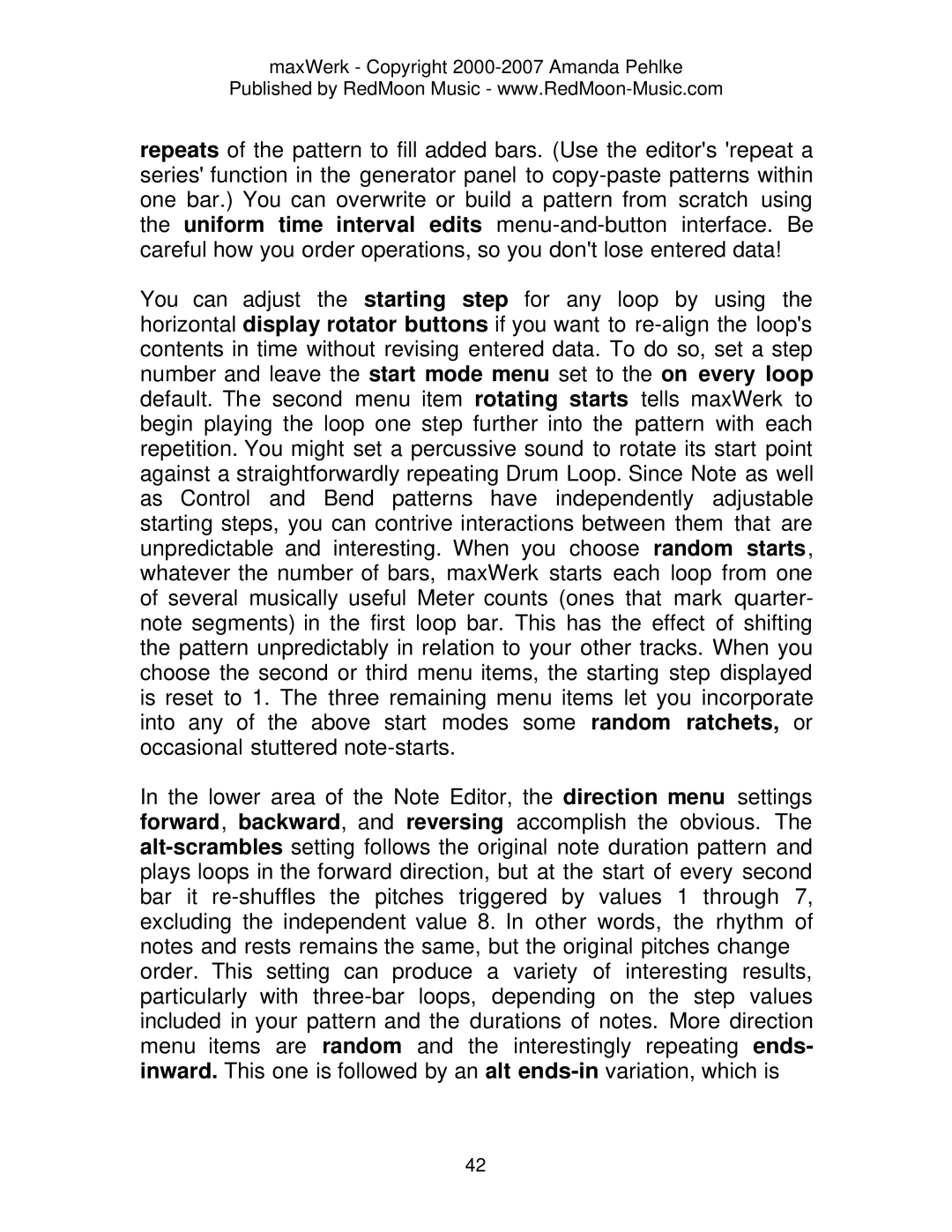maxWerk - Copyright 2000-2007 Amanda Pehlke
Published by RedMoon Music - www.RedMoon-Music.com
repeats of the pattern to fill added bars. (Use the editor's 'repeat a series' function in the generator panel to copy-paste patterns within one bar.) You can overwrite or build a pattern from scratch using the uniform time interval edits menu-and-button interface. Be careful how you order operations, so you don't lose entered data!
You can adjust the starting step for any loop by using the horizontal display rotator buttons if you want to re-align the loop's contents in time without revising entered data. To do so, set a step number and leave the start mode menu set to the on every loop default. The second menu item rotating starts tells maxWerk to begin playing the loop one step further into the pattern with each repetition. You might set a percussive sound to rotate its start point against a straightforwardly repeating Drum Loop. Since Note as well as Control and Bend patterns have independently adjustable starting steps, you can contrive interactions between them that are unpredictable and interesting. When you choose random starts, whatever the number of bars, maxWerk starts each loop from one of several musically useful Meter counts (ones that mark quarter- note segments) in the first loop bar. This has the effect of shifting the pattern unpredictably in relation to your other tracks. When you choose the second or third menu items, the starting step displayed is reset to 1. The three remaining menu items let you incorporate into any of the above start modes some random ratchets, or occasional stuttered note-starts.
In the lower area of the Note Editor, the direction menu settings forward, backward, and reversing accomplish the obvious. The alt-scramblessetting follows the original note duration pattern and plays loops in the forward direction, but at the start of every second bar it re-shuffles the pitches triggered by values 1 through 7, excluding the independent value 8. In other words, the rhythm of notes and rests remains the same, but the original pitches change order. This setting can produce a variety of interesting results, particularly with three-bar loops, depending on the step values included in your pattern and the durations of notes. More direction menu items are random and the interestingly repeating ends- inward. This one is followed by an alt ends-invariation, which is
